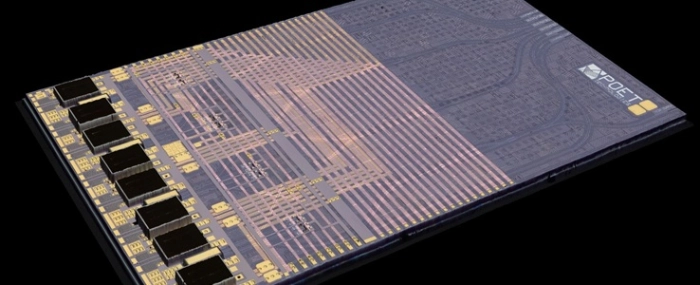
POET, QCi to co-develop 3.2 Tbps optical engines
Quantum Computing Inc. (QCi) will leverage its expertise with TFLN to integrate the high-performance 400G/Lane modulators with the POET Optical Interposer platform technology.
Canada’s POET Technologies and Quantum Computing Inc. (QCi), an integrated photonics and quantum optics technology company, have announced a strategic collaboration to develop 400G/Lane thin-film lithium niobate (TFLN) modulator-based 3.2 Tbps engines that will be designed to lead the next era of computing.
QCi, which is based in Hoboken, New Jersey, will leverage its expertise with TFLN to integrate the high-performance 400G/Lane modulators with the POET Optical Interposer platform technology. When complete, the engine will provide industry-leading data-transfer speeds at 3.2Tbps and beyond, meeting the massive demand of AI systems networks and datacenter hyperscalers, according to a media release.
“To achieve a commercially viable optical modulator that operates at 400G/Lane requires an integration platform such as the POET Optical Interposer. When we combine POET’s platform technology with QCi’s integrated photonics designs, the result is a solution that addresses the global demand for more compute power,” said Dr. Yong Meng Sua, Chief Technology Officer at QCi. “We look forward to this collaboration with POET and exploring our shared long-term vision for how to bring more efficient and better-performing compute devices to the market.”
Under the terms of the agreement, POET will fund the development of the 400G/Lane modulator, which is targeted for completion in the second half of 2026.
“The work we are doing with QCi is among the efforts that keep POET at the forefront of AI connectivity development. We are committed to constantly finding ways to innovate even as we execute on our sales strategy for our existing products,” said POET Executive Chairman and CEO Dr. Suresh Venkatesan. “A 400G/Lane optical modulator that incorporates TFLN will be a radical step forward for the industry.”
TFLN is a resilient and highly efficient material that has proven to be ideal for chip-scale photonic integration.
The global market size for 3.2T in pluggable and CPO formats is projected to reach close to USD 12 billion by 2030, according to the LightCounting report “Ethernet Optics: Cloud, Enterprise and Telecom,” September 2025, the media release said.


.jpg)
